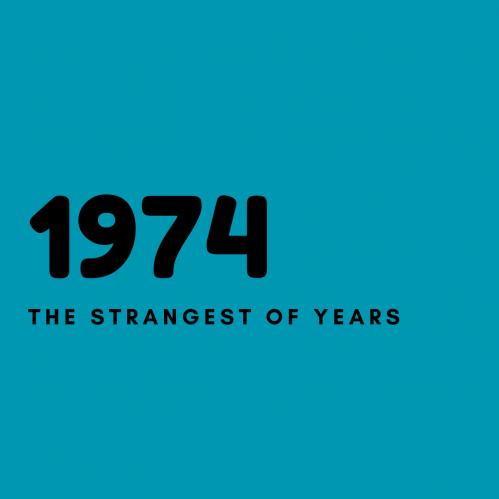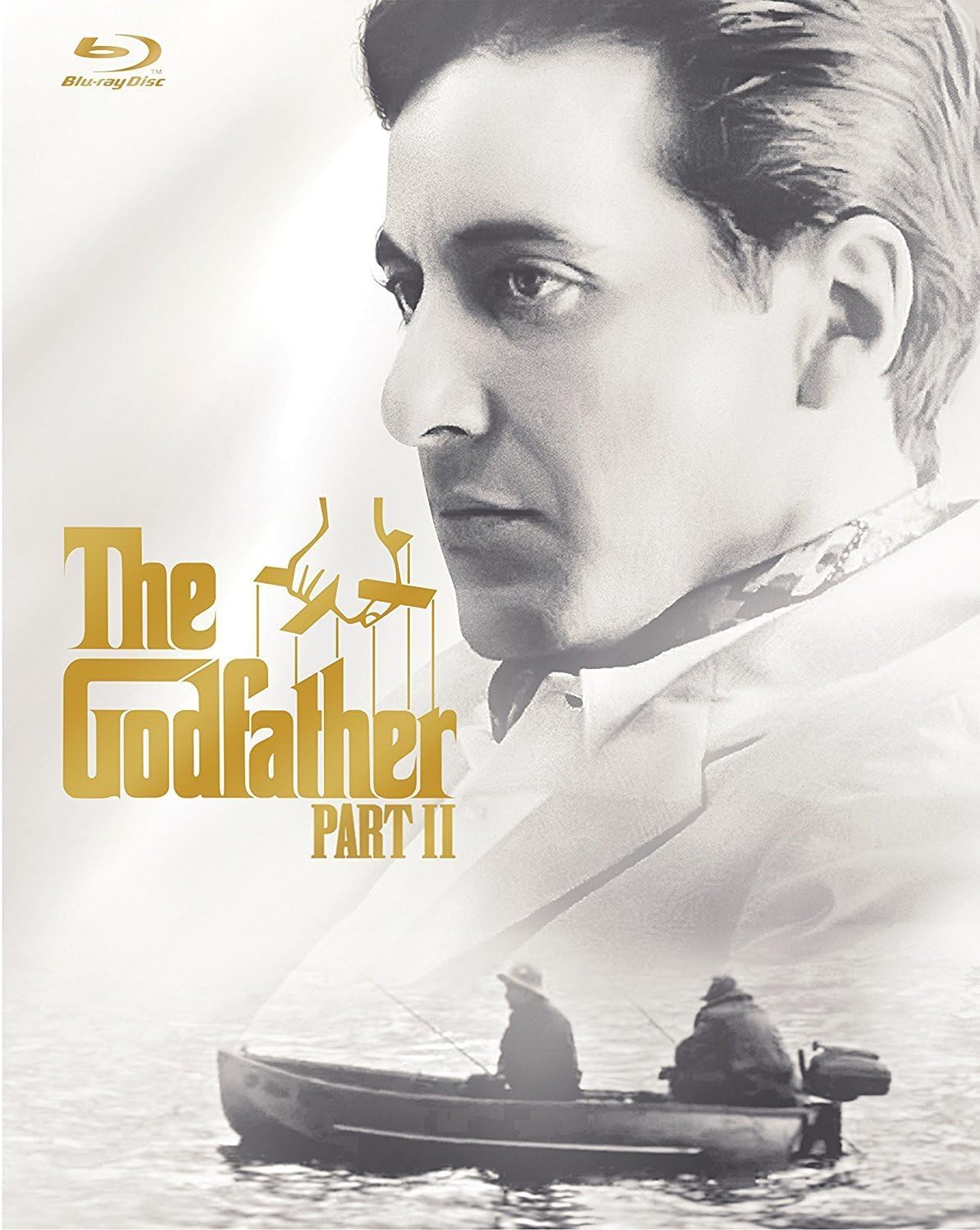
What's new
Walks by the sea
Fred Olsen's Cruise lines for 2025
Christmas books reviews
DVD reviews
Doctor Who
Our new website - Enjoy Britain online www.enjoybritainonline.co.uk/
New CD releases
Discover Knightsbridge, London
Birdwatching and more


Simon Evans looks back at a year that, more than any other, defined its decade
“If the Sixties was a wild weekend, then the Seventies was a long Sunday evening in winter, with cold leftovers for supper and a power cut expected at any moment”
Francis Wheen, Strange Days
The Seventies was the hangover after the party the night before, the wake-up call after years of freedom, the reality check after an era when, for a brief moment, anything seemed possible.
And no year captured the Seventies quite like 1974, a year of important changes that would set the tone for the rest of the decade and beyond.
The Arab-Israeli war of the previous year had led to hikes in the price of oil that had crippled Western economies and set in motion, in Britain, a death spiral of inflation and industrial unrest, with ever-rising prices leading to escalating wage demands. America was suffering perhaps the worst constitutional crisis in its history, terror attacks proliferated at home and abroad, a president died in office and even pop was at a low point, with only ABBA’s Eurovision triumph cutting through the gloom.
Politics – changing of the guard
The year began on a positive note – the first ever New Year’s Day bank holiday south of the border (Scotland, which had been awarded a day off for New Year as long ago as 1871, was given January 2 as an extra day’s holiday).
Soon, however, it was back to business as usual, with electricity effectively rationed, a three-day week introduced for businesses, and ‘non-essential’ shops forced to choose whether they switched on the lights in the morning or afternoon.
This was all brought on by a combination of the previous year’s hike in oil prices and an overtime ban by the miners as a possible prelude to another strike. The one that had taken place in 1972 had been crippling, this promised to be even worse.
With the nation heavily reliant on coal-burning power stations for its energy there was a very real fear that the nation could run out of electricity.
The miners duly followed through on their threat and went on strike on February 5, prompting Prime Minister Edward Heath to call a general election.
Heath, in effect, threw down the gauntlet to the striking miners, asking the country to decide, in effect, who governs. ‘Not you’, was the reply when the nation went to the polls on February 28, Labour claiming victory by just five seats.
The Conservatives had, however, taken a higher share of the popular vote, which emboldened Heath to seek to form a coalition government with the Liberal Party, whose six million votes had brought them just 15 seats thanks to the vagaries of the British electoral system.
Liberal leader Jeremy Thorpe had fought a dynamic campaign, although, behind the scenes, he was already beset by the scandal that would bring him down and, five years later, find him arraigned at the Old Bailey on charges of conspiracy and incitement to murder.
Remarkably, given what would follow, Thorpe had been offered the post of Home Secretary in a Conservative-Liberal coalition, but the talks foundered and the prospect of Thorpe being put in ultimate charge of any investigation into his own alleged misdeeds never materialised.
That left the way open for Harold Wilson to become Prime Minister again, having already headed the Labour government of 1964-70. At the October General Election Labour won enough seats to govern – for the time being – without the help of any other party.
Terror at home
At the top of Wilson’s in-tray was the seemingly insoluble problem of Northern Ireland. With Protestants and Catholics more divided than ever before a political solution seemed to be nothing more than a pipedream. All the government could do was try and stop the two communities from tearing each other apart and attempt to defeat the hard men of the IRA.
Up until 1974 all that British people on the mainland knew about Northern Ireland came via the evening news, a seemingly endless catalogue of atrocities perpetrated by terrorists in the province.
In February 1974 that all changed with the M62 bombing of a coach carrying British soldiers and their families back home after weekend leave. Eleven people were killed in the explosion, including the whole of one family, and 50 were injured, most of them seriously. Terror had come to the mainland.
In June an IRA bomb went off in the House of Commons, thankfully causing only minor injuries and no major damage, but one person was killed, and several seriously injured, many of them children, when another bomb went off at the Tower of London.
Then, in October, four soldiers and a civilian were killed in the Guildford pub bombings and 21 people lost their lives a month later when bombs went off in two Birmingham pubs.
Both atrocities were also the work of the IRA and, such was the understandable public outcry and demand for justice, several innocent people ended up spending the best years of their lives in jail having been wrongly convicted for the crimes before finally being exonerated in the late Eighties and early Nineties.
It would be another 24 years before a kind of peace finally descended on the troubled province. The real Guildford and Birmingham pub bombers were never brought to justice.
Watergate and beyond
Although there had been a thawing of East-West relations in the Cold War, thanks in part to the diplomatic efforts of President Nixon and his Secretary of State Henry Kissinger, little had changed inside Soviet Russia, indeed there had been a hardening of attitudes since Leonid Brezhnev had taken over as the country’s de facto head of state, with zero tolerance of dissidents.
In March 1974 Alexander Solzhenitsyn, whose monumental Gulag Archipelago trilogy of books exposed the full horror of Stalin’s prison camps, was expelled from Russia and spent the rest of his life (he died in 2008) warning the West against appeasing his former oppressors. Perhaps we should have listened more closely.
And for all Nixon’s success in establishing new relationships with not just Soviet Russia but also communist China, it could not deflect attention from the Watergate crisis that engulfed the last two years of his presidency.
As so often it was not so much the initial offence (a bungled attempt to bug Democratic Party headquarters) but the cover-up that followed, culminating in one of the country’s most dramatic constitutional crises, that did for Nixon, and he finally succumbed to the inevitable and resigned in August.
There were major political changes elsewhere, too, with France’s President Pompidou dying in office from a rare form of blood cancer, and West Germany’s chancellor Willy Brandt being forced to resign after it was discovered East German spies had infiltrated the highest levels of his party.
There was change afoot in Portugal too, the signal to launch the successful ‘Carnation Revolution’ that overthrew the country’s fascist regime coming from, of all things, the playing on the radio of the country’s Eurovision song, that had come joint last in that year’s contest.
Music
 ABBA’s triumph in that same Eurovision Contest, staged in Brighton, was a rare high point in a year that saw pop artistically treading water.
ABBA’s triumph in that same Eurovision Contest, staged in Brighton, was a rare high point in a year that saw pop artistically treading water.
The year had dawned with Slade’s Merry Xmas Everybody topping the chart, and what was so refreshing about the song was how – in contrast with the usual banal Christmas card homilies set to music – the song captured the festive season as it actually was for millions of families, and from a teenager’s point of view, too.
The undertow of melancholy in the music and lyrics may have reflected how, with enforced power black-outs at home and food shortages in the shops, it had been one of the bleakest festive seasons in living memory, but when Noddy Holder screams ‘It’s Christmas’ at the end it’s an invitation to do what us Brits have often done best, make the most of a bad job and enjoy ourselves.
The single may have captured the mood of the nation but Merry Xmas Everybody proved to be the beginning of the end for the band, and for the colourful glam-rock movement it had come to represent.
Slade had enjoyed a golden 1973 – Merry Xmas Everybody was their third Number One single of the year, and the third to go straight to the top slot – but they would never scale those heights again, and neither would Roy Wood, whose group Wizzard had also had a good year, only prevented from celebrating a third Number One, with the equally immortal festive hit, I Wish It Could Be Christmas Every Day, by his Midland cohorts.
David Essex’s Gonna Make You A Star, When Will I See You Again, by the Three Degrees, and John Denver’s Annie’s Song would go on to be three of 1974’s biggest selling singles in a year that saw maudlin records like Seasons In The Sun and Billie Don’t Be A Hero also top the charts. The mood lightened briefly in July when Ray Stevens hit Number One with The Streak, cashing in on a brief and inexplicable national obsession with people stripping off and invading sports events.
 The album charts for 1974 would tell their own story, with The Carpenters Singles 1969-74 emerging as the best-selling album of the year.
The album charts for 1974 would tell their own story, with The Carpenters Singles 1969-74 emerging as the best-selling album of the year.
Seven of the top ten biggest-selling albums of 1974 were either compilations (Elvis Presley’s 40 Greatest Hits) or had already been on release for a year or more (Tubular Bells, Dark Side of the Moon, Simon and Garfunkel’s Greatest Hits).
Of the top ten sellers only Paul McCartney’s Band on The Run, Slade’s Old, New, Borrowed and Blue and new teen sensations The Bay City Rollers’ Rollin’ were new recordings released during 1974.
One of the most eagerly-awaited record releases of 1974 was David Bowie’s album Diamond Dogs, and its dystopian mood certainly reflected the downbeat mood of the year.
At the cinema
It may have been a thin year for pop but cinemagoers in 1974 had a wide variety of films to choose from; blockbusters like The Towering Inferno and Airport ’75, the Mel Brooks comedies Blazing Saddles and Young Frankenstein, Roman Polanski’s noir classic Chinatown, a colourful adaptation of F Scott Fitzgerald’s The Great Gatsby and an almost unrecognisable Albert Finney taking the part of Hercule Poirot in Murder On the Orient Express.
 Then there was the much-anticipated The Godfather Part II, Francis Ford Coppola’s sequel to his much-garlanded Mafia epic. Although critical and commercial reaction was mixed upon its release, the film is now rightly regarded as a classic and, if anything, an improvement on its predecessor in its broad sweep and portrayal of the corruption of America, a theme that obviously resonated during the time of Watergate.
Then there was the much-anticipated The Godfather Part II, Francis Ford Coppola’s sequel to his much-garlanded Mafia epic. Although critical and commercial reaction was mixed upon its release, the film is now rightly regarded as a classic and, if anything, an improvement on its predecessor in its broad sweep and portrayal of the corruption of America, a theme that obviously resonated during the time of Watergate.
Books
And, inevitably, the book of the year was All The President’s Men, the account, in their own words, of how Washington Post journalists Bob Woodward and Carl Bernstein broke the Watergate story and did much to drive the investigation into wrongdoing at the Nixon White House. Published just two months before President Nixon’s resignation, it went on to become a major feature film, starring Robert Redford and Dustin Hoffman.
 John Le Carré’s spy novel Tinker, Tailor, Soldier, Spy, the first of his Karla trilogy, captured the sombre mood of the year and other big sellers during 1974 were Jaws, Carrie, and Watership Down, while Zen and the Art of Motorcycle Maintenance, by Robert M Pirsig, was perhaps the last gasp of the counter-culture as the cynical Seventies firmly took hold.
John Le Carré’s spy novel Tinker, Tailor, Soldier, Spy, the first of his Karla trilogy, captured the sombre mood of the year and other big sellers during 1974 were Jaws, Carrie, and Watership Down, while Zen and the Art of Motorcycle Maintenance, by Robert M Pirsig, was perhaps the last gasp of the counter-culture as the cynical Seventies firmly took hold.
Sport - The mighty fall
If 1974 saw big changes in global and domestic politics, there was a changing of the guard in sport, too.
In April – six years after their victory in the European Cup against Benfica – Manchester United were relegated to the old Division Two. The great team of the Sixties had disintegrated, and with horrible irony it was one of those totemic players, Denis Law, now playing for Manchester rivals City, who scored the goal that sent his old club down. One sports writer described Law’s reaction, “arms frozen by his side, rigid and unemotive, with no hint of celebration”. United won promotion back to Division One at the first attempt and have been there ever since.
There was also the feeling of an era ending when England manager Sir Alf Ramsey was sacked in May, no great surprise given that England had failed to qualify for that summer’s World Cup finals.
Ramsey, a man not given to hyperbole, later described his sacking at FA headquarters as “the most devastating half hour of my life”. (He was replaced by the Leeds manager Don Revie, who was paid twice as much as Sir Alf and managed the England team for just three years before jacking it in for a better offer in the United Arab Emirates).
British interest in the 1974 finals therefore focussed on Scotland, who did well to draw against Brazil and Yugoslavia but failed to progress beyond the group stage by only beating minnows Zaire by two goals to nil.
Hosts West Germany triumphed in the final against the much-fancied Dutch team who had delighted the neutrals with their inventive brand of attacking football. In contrast the holders, Brazil, were unrecognisable from the team that had triumphed four years earlier, opting for a more brutal, European approach that was alien to their usual open attacking play and saw them exit the tournament in the second round.
The vanishing lord and MP
On November 7 the raffish British peer Lord Lucan, who was separated from his wife and engaged in a bitter custody battle over their children, simply disappeared.
That evening, the children’s nanny, Sandra Rivett, had been attacked and murdered at the family’s home in Belgravia, with Lord Lucan discovered at the scene by his wife.
It is believed that she had been the intended victim, and the nanny had been murdered by mistake. After confronting her husband and escaping, covered in the nanny’s blood, Lady Lucan raised the alarm at a local pub.
Lord Lucan disappeared and has never been found, despite numerous sightings as far away as Madagascar, Trinidad and Mexico.
There were wild tales of him passing his days as a hippie in Goa or living in the back of a Land Rover in New Zealand with a pet possum, but close friends, including the colourful zoo owner John Aspinall, believed Lucan committed suicide shortly after the murder by taking a motor launch out to sea off Newhaven, tying a weight around himself and jumping overboard.
He was found guilty of murder by a coroner’s jury in June 1975. The truth about that night, and his disappearance, will probably never be known.
The same month that Lord Lucan disappeared, the Labour MP John Stonehouse vanished from a beach in Hawaii, leaving behind a pile of his clothes. It was meant to look as though Stonehouse had taken his own life, but in reality he was travelling the world on a false passport, finally turning up in Australia.
In his diary of the time Tony Benn wrote that few in Westminster believed the suicide story as it was well known that Stonehouse was having financial problems and also had a complicated private life.
Although Stonehouse liked to think of himself as a James Bond-type figure, courting danger and living by his wits, in reality he was closer to Walter Mitty. He was suspected of having spied for an Eastern bloc country, not very well, and in the government had risen no further than the low-ranking role of postmaster general.
Full of grand schemes, several business ideas had run into the ground leaving him facing ruin – and he wasn’t much good at going on the run either. It only took the authorities in Victoria a couple of weeks to sniff him out, initially suspecting him of being Lord Lucan, and he was arrested and brought back to Britain just before Christmas.
Remarkably, Stonehouse did not resign as an MP, and with a minority Labour government needing every vote they weren’t about to encourage him. He made an extraordinary personal statement to the house claiming that his disappearance had been “a journey back to myself” but in 1975 was sentenced to seven years in prison for fraud and wasting police time.
He served four years and spent the rest of his life writing bad spy novels and campaigning for the SDP, in itself a kind of self-imposed political exile.
Stonehouse died in 1988 but his story continues to fascinate and has been the subject of several books and a recent ITV series.
Streakers, disappearing peers and MPs, a coalition government that wasn’t and a revolution instigated by a Eurovision song – 1974 was indeed the strangest of years.
Remembering the Bomber Boys
Bomber Command
Cropredy – the friendly festival
Cricket Summer of 1964
Heroes in the Mountains
Motorbike at the National Motor Museum
June's book reviews
Royal robes
Peter Sellers’ Aston under the hammer
National Bingo Day 27th June 2023
Hen Harriers
Air up
Simon Evans reviews the latest CDs
April’s Top DVDs selected by Simon Evans
Here we go, here we go…for the Coronation
Otter
Easter on a budget
‘The Slug’ will race again after 100 years
Bath night for dogs
Classic Motoring Memories
Tios Drinks
Shake up your makeup
New Year, New You
From Italy with love
Mail-order meat comes of age
Christmas recipes
Christmas Crafts Part 2
Back to your roots
In your garden in Winter
Christmas Crafts
Christmas Gift Ideas
Vegan Skincare
Recipes for hope
Beauty Feature - Embrace the grey
Calling all coffee fans!
World Oceans Day 8th June
Beauty Feature - Feet First
Craft Corner - A great Easter basket
Battle of Britain
Claire Foy "I didn't get life until I was 32"
Alexander Armstong: "My family is my priority"
Cosyfeet Community Award 2019
How to Maintain Your Independence in the Kitchen
Ruth Wilson "Audience's don't know who I really am"
1969: The Year The Dream Died
Want to live the (Feel)Good Life? Move to Watford
Pressures of the sandwich generation
Steve Coogan"The most radical thing I can do is talk about love"
Oldie of the Year 2019
Rabble: The Movement keeping you fit and making you money!
Suzi Quatro: "I've always been a rocker at heart"
Giving up plastic
Women in WW1
Do you remember? UFO
Bognor and other Regises
John Lennon & Yoko Ono: 'Imagine'
Bill roache "It's a real privilege to make people happy"
Nana Mouskouri "Music brings me peace, love and hope"
How to Earn Money by Working from Home
How to get the best night's sleep, every night
Ringo Starr "I'm learning to handle life"
Headphones with a built in hearing test
Petula Clark: "I make the most of every moment"
London's other underground
Blue Peter: Here's one they made earlier
Gary Oldman: "Acting is an antidote to self hatred"
Emilia Fox: "I've learnt to find my own voice"
Love Your Gut Week Recipes
Puffin photos help to tackle decline of the 'clowns of the sea'
Craig Revel Horwood: "I don't care what people say about me"
Do you remember? Apple Records
What a Carry On!
Worried about being worried?
"I feel like the unluckiest person in the world."
Death of a Princess
Queen Elizabeth: Happy and Glorious
The Beatles: It was 50 years ago...
Hank Marvin: “Meeting Cliff changed my life”
Nicole Kidman "Children are the joy of my life"
The world of Parry Ray
Monty Python: Something completely different
Staffordshire Day
I always think I'm going to get found out
All shook up...The day that Elvis died
Twiggy: "I thought the world had gone mad"
Peter Capaldi: "I like characters who are strange"
Make eating breakfast a resolution which sticks, with milk&more
"Turning 60 can't be that bad!"Jennifer Saunders
The Enduring Power of the Unknown Soldier
Bradley Walsh "Variety is great for the soul"
Thank you, Brewood
"You never know what's round the corner"
1966 and All That
Remembering the Heroic Olympians
Martina Navratilova: "I Always Question Authority"
Guide for choosing clothes for older relatives
Getting older and disabled drivers behind the wheel
Men in Sheds
Scared to Shop!
Over 40s Named Most Successful Online Daters
Stay at home mum and author re-ignite's her career
Dating in later Life
Great garden getaways
Toton Engineman Review
The Making of Les Mis
“I’m a restless person by nature”
"We’re such country bumpkins”
Still time for tearooms
Hallowed hall of fame

Walks by the sea
Fred Olsen's Cruise lines for 2025
Christmas books reviews
DVD reviews
Doctor Who
Our new website - Enjoy Britain online www.enjoybritainonline.co.uk/
New CD releases
Discover Knightsbridge, London
Birdwatching and more